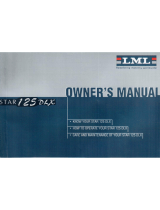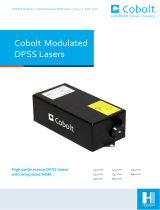Page is loading ...

AOM AUSTRALIA
22/54 BEACH ST KOGARAH NSW 2217 Tel 1300 903 788 Fax 1300 904 088
Page 1of 5
AIR POLLUTION CONTROL SYSTEM FOR FOOD PREMISES
STAINLESS STEEL KITCHEN EXHAUST HOODS
HCES-Series Exhaust hood with or without supply air plenum
HCOS-Series Exhaust hood with ozone generators with or
without air supply plenum
HCFS-Series Exhaust hood with electrostatic filters with or
without air supply plenum
HCFOS-Series Exhaust hood with electrostatic filters, ozone
generators and with or without supply air plenum
HCFDS-Series Exhaust hood with electrostatic filters (double
pass) with or without air supply plenum
HCFIS-Series Island exhaust hood with electrostatic filters with
or without air supply plenum
HCD-Series Dishwasher hood
CONTENT
A- Shipment
B- System overview
C- Hoods main features
D- Suggested specification
E- Installation guidelines
F- System test
G- Maintenance and cleaning
H- Warranty

AOM AUSTRALIA
22/54 BEACH ST KOGARAH NSW 2217 Tel 1300 903 788 Fax 1300 904 088
Page 2 of 5
A. Shipment
- Check that the hood has not been damaged during transport. Immediately report any
discrepancy to AOM. Read the complete guide before commencing the installation.
B. System overview
- AOM Australia has developed a series of very efficient commercial kitchen exhaust
hoods which treat the contaminants generated by the cooking process within the
kitchen.This means that the maintenance and servicing of the filtration equipment is
made very easy. The exhaust ducting will stay free of grease particles and the risk of
fire is minimized.
- The filtration removes the finest particles of grease and smoke. Unlike UV light
technology, AOM electrostatic filters (ESP’s) are designed to stop the smoke
generated by most cooking equipment.
- The AOM ozone generators destroy the odour remaining in the airflow after the
ESP’s.
- The hood design has an increased overhang over the cooking equipment
which will improve the hood ability to capture the fumes (cooking process
surges) and also assist in reducing exhaust rate (between 20 to 30%).
- The hood design focusses on the optimization of the cooking plume. Refer to AOM
PDF’s file Commercial Kitchen Ventilation Design Guide for the best effectiveness of
kitchen ventilation.
C. Hood main features
- AS 1668.2-2012 certified
- Constructed from 1.2 mm stainless steel 304 no 4. All corners welded and polished
- High efficiency stainless steel honeycomb filters tested in accordance with AS 1530.1
(providing an effective barrier against flames entering the ductwork)
o Low resistance - 25Pa at 2.54 m/s
- Make-up air specifically designed to enhance the cooking plume and to direct the
fumes towards the filters using AOM ADDAIR
TM
technology.
- Constructed using AOM FILTRAIR
TM
technology (a combination of honeycomb filters
and electrostatic cells providing a very efficient filtration system)

AOM AUSTRALIA
22/54 BEACH ST KOGARAH NSW 2217 Tel 1300 903 788 Fax 1300 904 088
Page 3 of 5
- To help reduce the fire risk stainless steel honeycomb filters are positioned and
angled to minimize possible flame contact from the cooking process.
- Removable grease trays for easy maintenance and cleaning
- Hood lighting uses the latest LED technology
- Electrostatic filters and ozone generators can be retrofitted if required
- AOM can provide technical data & drawings for any job.
o Required details include:
o Layout, dimensions & rating of the cooking equipment
o Kitchen height (to determine hood design)
o Percentage of the supply air versus the exhaust airflow
o Type of cooking (Thai, Indian, new australian cuisine, etc…) and the location
of the discharge point
D. Suggested specification
- The kitchen exhaust hood shall be of type AOM HC_-Series. The hood shall be fitted
with honeycomb filters type AOM HS-Series tested according to AS 1530.1. The
hood shall be fitted with electrostatic filters type AOM AK-Series behind each
honeycomb filter. Efficiency of the filtration shall be 95% for particles down to 0.01
Micron. The hood shall have a perforated front panel to spread the air supply evenly
and at low velocity.The manufacturing and installation of the hood shall meet all
relevant Australian/NZ Standards. The hood construction shall be of 1.2 mm
stainless steel 304 number 4 polishing. The hood shall be fitted with light boxes. The
hood dimensions shall be as per AS 1668.2-1991, Appendix E.The hood shall be
installed and maintained according to AOM specifications. The hood airflows
(exhausted and air supply) shall be as per AOM recommended figures.
E. Installation guidelines
- Install the hood between 2000 to 2100 mm high above the finished kitchen floor.
- Using the mounting brackets supplied, hang the hood with booker rods to either the
kitchen slab or steel beams. See hood weight in AOM specifications.
- The back gutter of the hood should be level. The side gutters should tilt upwards
slightly to enable the grease and water to run towards the drain plugs.
- Run the exhaust and make-up ducting on top of the spigots. Connect the spigot to
the ducting with Tek screws from the inside of the hood. Remove the filters and the
front panel for direct access.
- Connect the power to the hood with the junction box located on top of the hood.

AOM AUSTRALIA
22/54 BEACH ST KOGARAH NSW 2217 Tel 1300 903 788 Fax 1300 904 088
Page 4 of 5
F. System test
- The commissioning of the hood should be done with a representative of AOM
Australia.
- Switch the exhaust fan on. The make-up air fan should run on the same switch.
- Use an anemometer to adjust the airflow for each filter by opening or closing the
sliding dampers located on the exhaust spigots. For the best efficiency, adjust the air
velocity through each filter at a maximum of 2.54 metres/second.
- The filter velocity can be adjusted according to the type of cooking equipment located
under the filter.
- Using the anemometer adjust the make-up air according to the recommended
airflow.
The airflow of the make-up air grill should be equal from one end to the other. Slide
the dampers accordingly.
- The LED lighting should be on
- If in use switch the electrostatic filter on. The green light on the console should be on.
- If in use switch the ozone generators on. The two green lights (ozone/power on) on
the console should be on.
G. Maintenance and cleaning
- The AOM representative will organise the maintenance of the hood with the end
user.
- Every kitchen is different, however on average the following cleaning schedule
applies:
Light cooking: every six weeks
Medium cooking: every four weeks
Heavy cooking: every two weeks or weekly for charcoal cooking.
- The inside of the hood should be cleaned with hot water and a degreaser once a
month. Never use caustic detergent. Unscrew the drain plug to remove the
water/grease from the gutter. When the hood is dry, use a stainless steel cleaner
(WD-40) to polish it.
- The exhaust and make-up chambers should be cleaned every three months using a
non-caustic detergent. Access to the chambers is through the filters openings and by
removing the air supply grille (a few screws have to be unscrewed).

AOM AUSTRALIA
22/54 BEACH ST KOGARAH NSW 2217 Tel 1300 903 788 Fax 1300 904 088
Page 5 of 5
H. Warranty
- Limited warranty for AOM HC_-Series equipment. This warranty is subject to
the following conditions:
- To validate the warranty, the hood should be installed and maintained as per
AOM specifications.
- A new exhaust hood is warranted to be free from defects and /or
workmanship for a period of one (1) year from the date of the warranty
application.
- Any spare part is warranted to be free from defects and/or workmanship for a
period of ninety (90) days from the date of its installation.
- The warranty for new equipment and spare part covers the repair or
replacement of the defective part. Labour and travel will be charged at an
hourly rate.
- To validate the warranty the food premises owner should sign an agreement
with an AOM accredited maintenance company and agree to purchase spare
filters and electrostatic cells for changeover purpose.
- Any claim must be presented to AOM. No warranty repairs will be granted
without the AOM consent in writing. If damage occurs during shipping, notify
AOM immediately so that a claim can be filed.
- The above limited warranty does not apply to damage resulting from accident,
alteration, misuse or if the serial number is removed or defaced.
/



